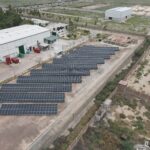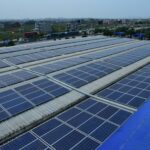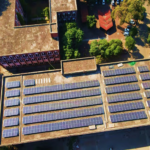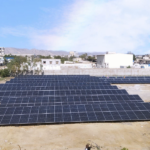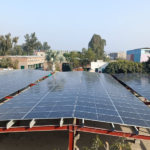Solar energy has become a transformational solution for Pakistan’s industrial organizations through its reliable and affordable methods to address energy issues. The growing energy requirements and unstable power infrastructure drive Pakistani businesses to implement solar power systems for their energy supply needs. The industrial sector in Pakistan has experienced quick growth in solar energy adoption which shows valuable advantages for companies of all sizes.
Pakistan has ample sunlight reaching the country for 300 days annually. Businesses searching for replacement solutions to traditional energy supply choose solar power because of its suitability. Industrial businesses that used to pay high electricity expenses now find solar energy economically beneficial while preserving its environmental sustainability, which boosts its appeal in the market. Solar power also emerges as a reliable solution choice for industries because traditional energy prices keep rising and supplies become unreliable.
Data on Solar Uptake in Pakistan’s Industrial Sector
The industrial sector in Pakistan experiences rapid expansion in its adoption of solar power systems. The adoption of solar power exists because businesses require dependable energy supply alongside lower operational costs. The popularity of captive solar generation has surged because companies generate their own power through solar installations. The C&I sector now produces at least 1 GW of solar power using captive systems but independent assessments suggest the actual power production could reach up to 2-3 GW.1 The solar energy adoption rate has experienced a notable increase during an era where solar power utilization was significantly lower only a few years ago.
Different industrial sectors like manufacturing, textiles, and food processing lead this energy transformation. Business operations in Pakistan face increasing production risks due to the grid’s frequent power shutdowns and voltage issues. Solar power enables these industries to lower their expenses through its cheaper stable supply of energy beyond what the national grid provides.
Cost Savings and Energy Security
Businesses require alternatives to traditional electricity since its high costs drive them toward long-term cost reduction options. A business that invests in solar energy will achieve substantial savings in electricity costs. The minimal expenses needed for solar power generation through installed solar panels result in fast returns on initial investments.
Additionally, solar power delivers reliability against power disruptions that basic utility grids are incapable of providing. Power outages impose severe challenges upon the industrial sector because it depends on dependable electric supply for its operations. This allows industries to produce their own electricity which delivers them a dependable and foreseeable electrical supply.
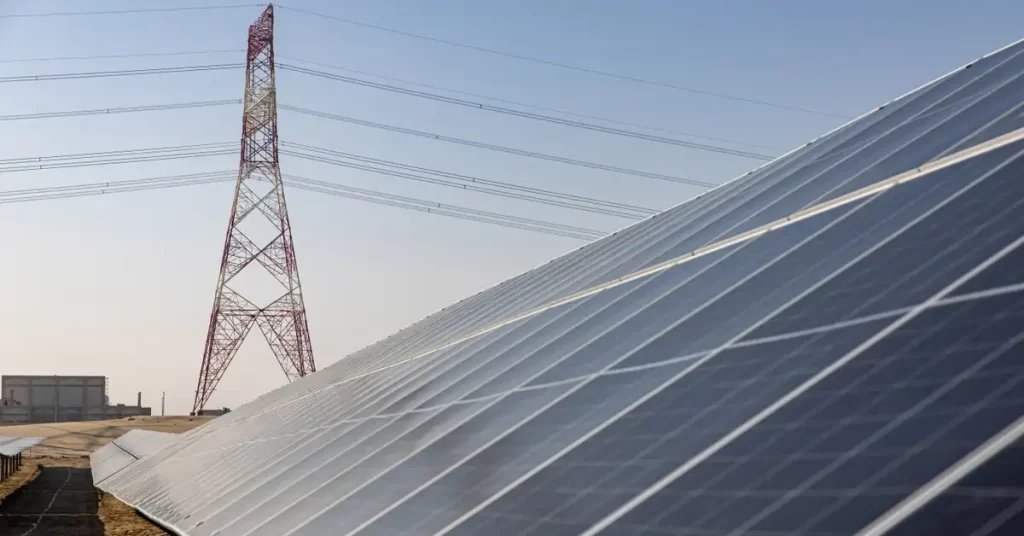
The Role of Shams Power in Solar Uptake
One of the companies leading the charge in solar energy adoption within Pakistan’s industrial sector is Shams Power. We have been instrumental in providing tailored solar solutions to businesses, helping them reduce their reliance on the national grid. We specialize in large-scale solar projects for industrial clients, enabling businesses to generate their own electricity efficiently and sustainably. By offering end-to-end solar energy solutions, Shams Power has empowered industries to take control of their energy needs, reduce operational costs, and contribute to a greener environment.
Through our projects, several industrial businesses in Pakistan have made the transition to solar power, enjoying benefits such as lower energy bills and greater operational reliability. This growing trend of solar adoption is evidence of the changing mindset within the industrial sector, as businesses realize the long-term advantages of solar energy in terms of both cost and sustainability.
The Future of Solar Power in Pakistan’s Industrial Sector
The industrial sector of Pakistan shows promising prospects for solar energy adoption in the years to come. Solar power should become an essential component of Pakistan’s industrial energy combination as the industrial sector increases its energy demands while environmental sustainability gains importance. Solar energy solutions will expand across the business landscape because of their affordable operation along with their dependable function and environmental sustainability benefits.
Conclusion
Solar energy has emerged as a vital solution to rescue Pakistani industries from their current energy challenges. Businesses that adopt solar power systems receive multiple benefits including financial savings along with security of power supply while creating a cleaner future energy system. The industrial sector of Pakistan stands to experience a brighter energy-efficient future as Shams Power leads the transition to solar power alongside other companies.



